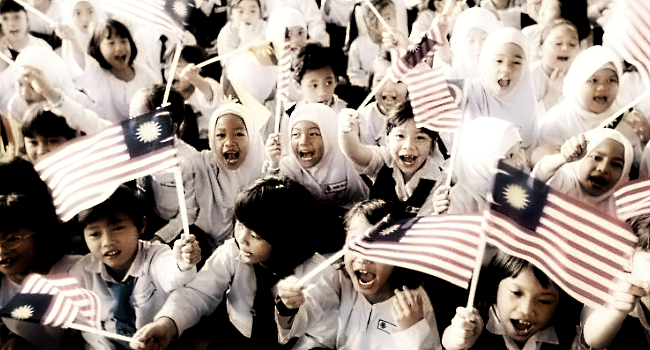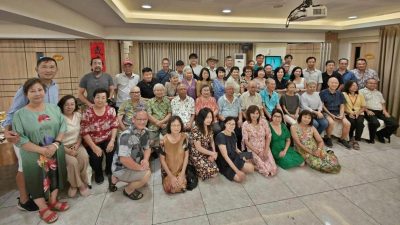Sin Chew Daily
This is not the first time biased contents in SMK history textbooks have raised controversies in our society. Many local historians, including Ranjit Singh Malhi who issued a statement lately, have constantly alleged that history textbooks in the country have committed one prominent mistake: overemphasis on one particular ethnic community, culture and religion, and have failed to reflect the reality of the country's cultural diversity.
Ranjit Singh has said students have been learning about history of the world and Malaysia from the perspectives of one particular ethnic community because most of the textbooks have been authored by Malays.
His viewpoint is shared by many other scholars who agree that history of non-Malays in this country is scarcely covered and incomprehensive. Such a phenomenon will have a bad effect on national solidarity.
The principal objective of secondary school history textbooks is to create a Bangsa Malaysia and national identity while promoting patriotism among the students. The way a history textbook is written will determine what kind of sense of history it will create in young Malaysians.
As a multiracial, multicultural and multireligious country, the same history textbook with emphasis on one particular community used by all students from different ethnic and cultural backgrounds will not help entrench the students' national identity nor strengthen unity among our multiracial students.
The students will only come to learn the country's real history when the history of different communities here are truthfully and fairly presented in the textbooks. This will strengthen their understanding of one another, promote national identity and a stronger sense of belonging.
All students must learn about the past of different peoples on this land from a more comprehensive and macroscopic approach in order to be able to contemplate on one another's present as well as future in creating a harmonious and prosperous nation for all.

Sure enough textbooks should give broader coverage to the history of Malays or Muslims by virtue of their bigger population. We have no intention of any sort to challenge their status in this country, but a Malay-centric sense of history that stresses only the contributions of elite politicians could misguide the new generation of Malaysians.
No one should wipe out the contributions of Chinese and Indian Malaysians as well as other minority groups here in nation-building. Their contributions and efforts must never be trivialized or even negated by our history textbooks.
Some historians and history teachers have highlighted the fact that some textbooks have used derogatory words to depict certain communities or historical figures. This will invariably instill a wrong impression among the students on certain historical events or persons, thus distorting their views on people and things around them.
They also feel that our history textbooks have given different weightage to the introduction of major world civilizations and religions, denying the students an opportunity to learn more about civilizational and religious diversity while spawning prejudices and narrow-mindedness. Such inadequacy is beginning to manifest in the way new generation Malaysians speak and act.
Malaysians' biased historical sense, coupled with the lopsided policies of the government, have provided a fertile ground for racial and religious extremism to grow and prosper. For instance, the recent decision by an SMK in Johor to divide school sports activities along racial lines should sound a warning bell. Fortunately the unpleasant incident has come to a close quickly following intervention from the education ministry.
The education ministry should place the emphasis on the development of the students' positive attitude and judgmental ability, and as such must review and redraw the objectives of the existing history and civic education curricula so that our students can broaden their scope of vision through logical discussions and critical thinking in grooming a new generation of open-minded, rational and moderate Malaysians.
The problems with history textbooks have been around for some time now, but despite having changed government twice, we have been unable to right the biased contents in our history textbooks.
When the PN government introduced the national unity action plan this February, it stressed that history education helps promote national unity among the people. The education ministry must therefore take heed of the advice of historians and educational organizations and set up a committee comprising scholars and education professionals in search of solutions to address the many problems with our history textbooks.
ADVERTISEMENT
ADVERTISEMENT


































